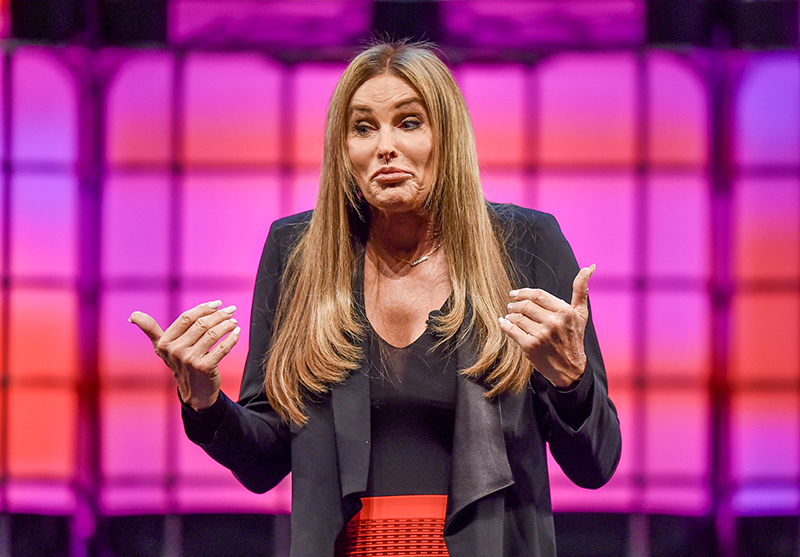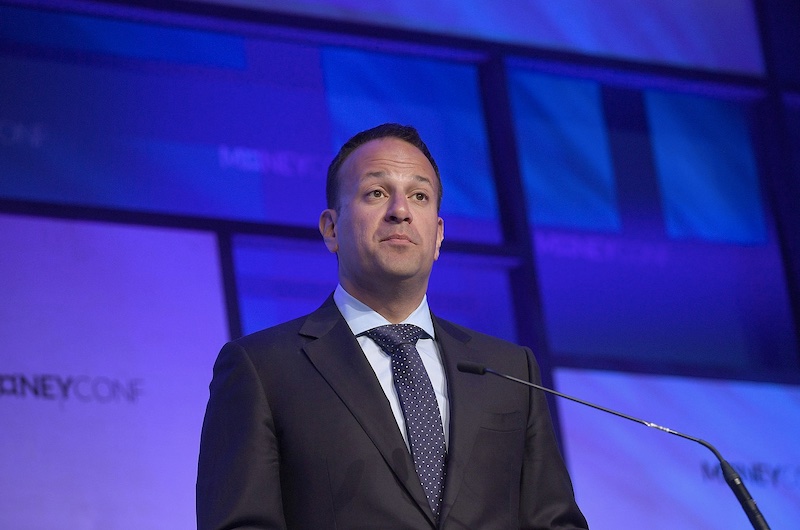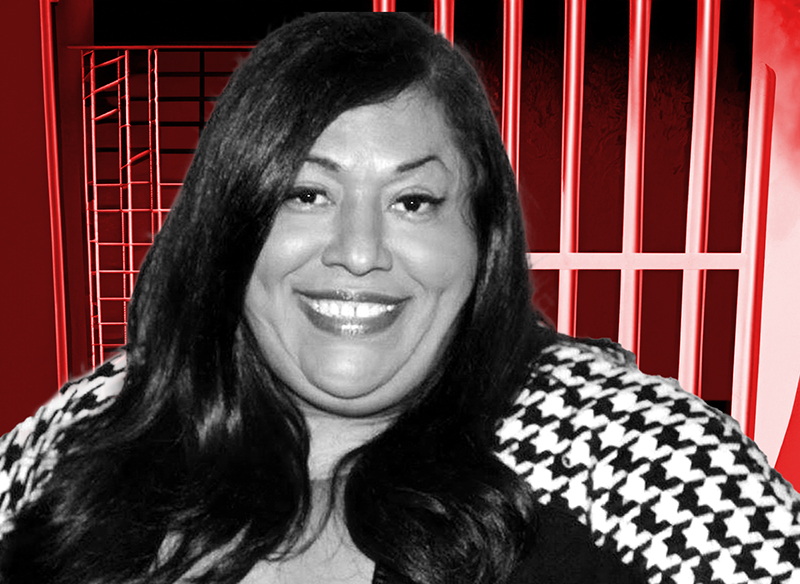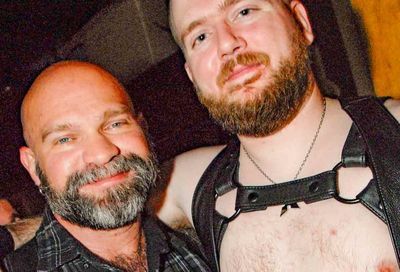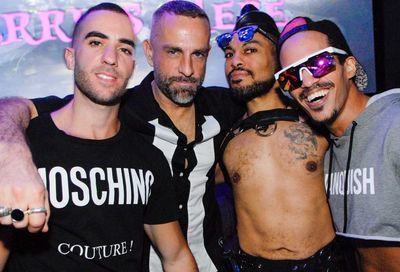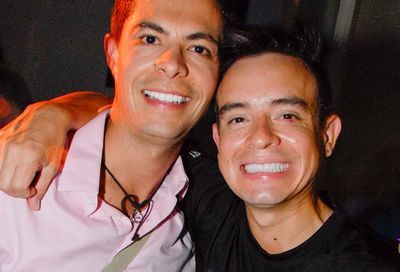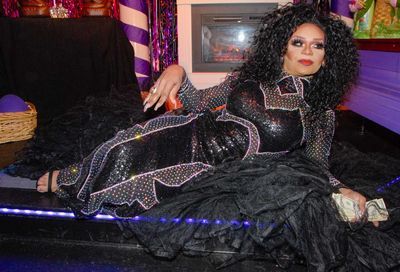Trans-American
Ruby Corado on being gender queer in the nation's capital
When Ruby Corado arrived in the Washington area as an immigrant from El Salvador, she was a teenager. She was also male.
“What marked the point when I decided I needed to leave was when I saw that my life was in danger for political and sexual orientation reasons,” says Corado of her journey to the U.S.
A self-described “very, very feminine” youngster, the then-teenage Corado slowly entered the D.C. gay scene, discovering a new world in the glitter and glamour of drag. And over the years, what may have started as drag revealed itself to be a part of everyday life.
Since that realization, Corado — she chose to use the maternal family name in honor of her mother, who died of cancer — has launched herself into the world of GLBT activism. Most significantly, she was part of the Coalition to Clarify the D.C. Human Rights Act, a group of activists who successfully mobilized to change D.C. Human Rights Act to include protections for gender identity or expression. The law took effect this March.
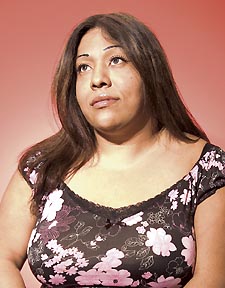 |
In a city that’s seen horrific violence against transgender people, including a string of murders over the past few years, this legislative change is both a practical and political victory. And with the involvement of a broad range of transgender activists and gay and lesbian supporters, it has helped solidify the sometimes uncertain positioning of transgender issues within the GLBT acronym.
“This is a great victory for transgender people in D.C.,” she says. “Not because discrimination is going to magically stop, but because we’ve shown that when transgender people and our allies come together we can improve things, for ourselves and our communities.”
For the 35-year-old Corado, it’s also a personal victory, marking another step in a journey that escaped persecution in one land only to help defeat it in another.
METRO WEEKLY: Did you realize you were different as a child?
RUBY CORADO: I don’t want to stereotype all gay people, but I do think that if we look within ourselves, most gay people carry some level of specialness. It can be constituted as being either “too butch” or “too feminine.” I got in touch with a huge chunk of my feminine side as early on as 4- or 5-years-old. I remember we used to play circus in my house with the neighbor kids, and I wanted to be the ballerina. I didn’t want to be the master of the circus, I wanted to be the dancer.
MW: How do you identify?
CORADO: I identify as Ruby, the person. But I have learned to modify myself to fit into what the movement really labels me, which is transgender. I’m perfectly happy with that. Even when I wasn’t really out, I was more feminine. Then when I was out I was super feminine — I used to call it ”super gay,” and for many years that’s really how I identified myself. Right now, based on the changes that I made to my body, I certainly identify as a transsexual. I don’t want to [have] the debate of whether I’m gay, because I work and I live and I breathe LGBT, so sometimes I go back and forth. But if I’m sitting with my friends — most of them are gay — I don’t feel any less than they are and they don’t feel any more than I am.
MW: You were very involved with the local drag scene.
CORADO: That all started around 1993 in the club scene, which I was very much a part of. A group of us would perform and do the pageants and the shows — it really felt very good. Around 1995, I won a pageant. I felt like I had just won the presidency. [Laughs.] I took the title and I used it to promote HIV prevention. I started talking about violence [against the community]. I took it very seriously. When I was on stage I was Miss Ruby Bracamontes, but I wanted to take it a little further. I didn’t want to just keep it in the club — I wanted to parade my crown during the day. And it really empowered me to speak about the things that were happening in the community.
MW: When did you decide to transition to living as a woman?
CORADO: Physically, in the early ’90s. It depends on how you define it. Sometimes I had to be butch and straight-acting, but it really didn’t work because no matter how straight-acting I tried to be, I still had the hand mannerisms and the way of talking that was very unique. But around 1995, I realized that when I was leaving the clubs on Friday and Saturday nights, when I came into the daylight, I didn’t want to go back to being the other person.
MW: How did the people around you react?
CORADO: I started educating people prior to the body changes. Even when I had a beard, I already had identified myself as who I was — I was Ruby. So when I had made the change it wasn’t really about having them accept me, because they already had. It was about celebrating.
MW: How about your family’s reaction?
CORADO: I have been very lucky, because I have a really good family. For many, many years I really tried to pull away from them because I didn’t want to hurt them. Knowing that I was gay, it was already a little tough on them. But overall, my mom, in particular, she was very accepting. And my sisters have been my biggest supporters. They have been really good.
MW: What led you to get involved with the coalition to change D.C.’s Human Rights Act?
CORADO: In the ’90s, my friends and I would go to a party or a club on Saturday and we’d have so much fun. It would be 4 a.m. and we wanted to still be in drag and living in the moment we were having. And then people on the street would start calling us names. That’s really how it all started. I realized that there were many of us who were very feminine — what we call ”gender queer” now — and we had some special needs.
Also, for myself, I realized that with all of the changes I was going through, I was feeling fabulous. I was really living the life I wanted to live and feeling great and so proud of myself and on top of the world. And then I get on the bus and get called ”faggot.” And that’s when I realized that the person I was becoming really had fewer opportunities, had many more barriers than when I looked not so feminine. I actually lost my job.
I was finding that things were a lot tougher. This beautiful, wonderful, amazing person that I was becoming was not supposed to be out in public. And because I was bringing it out in public, people were very cruel. I would apply for jobs and they’d look at me funny from the moment I walked in the door. Really, when I was living as a gay person I had some benefits, because even when I was super gay, the moment I looked butch, that’s where it all stopped. But once I was becoming this gorgeous person, there was no turning back. I cannot be butch anymore. I am who I am. And that’s how I got involved as an activist.
In 2004, a group of 40 of us decided we wanted to take it a little further. We realized that the protections for transgender people, gender-queer people who do not conform to the normal male/female [roles] did not have many clear protections. We hoped that by changing legislation, particularly the city’s Human Rights Act, that the episodes that we all had lived through — applying for a job or an apartment and not getting it — would be clearly stated as not okay. The coalition is really a big group of very dedicated people who wanted to see change.
The majority of people in the coalition are transgender — people who are beginning in the process, people who have been living their lives as transgender individuals for many years, and well-known transgender activists. But there are a lot of people who really sympathize with the gender queer or the queer transgender movement. The coalition is primarily a group of transgenders, but with a lot of support from the community.
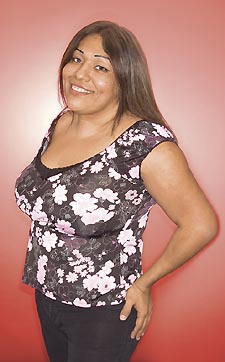 Corado |
MW: What was the biggest hurdle in getting it through the Council, from your perspective as an activist?
CORADO: The biggest thing was that we needed to believe in it and ourselves. There was no question that the needs of transgender people are huge, and we really wanted to believe that this would be something that would offer some tools to fight discrimination, to open opportunities for transgender people. So we had to put it out there in the community, making sure that everybody understood what the current situation was for transgender people. It was convincing a lot of people and organizations to sign on to the whole idea, to get community support for what we were doing.
Once the bill was introduced, to our surprise the entire Council signed on to it. That was something very pleasant, because for people like myself who work with transgender people and gender queer people, what we sometimes encounter with government is not pleasant. Then all of a sudden the City Council unanimously signs on to the bill. It was comforting because it showed that they knew that this was very important to the whole community.
MW: When you look at the Human Rights Act as now amended, what’s the best thing you expect to happen?
CORADO: For many years in this city, transgender people have had really bad experiences, beginning with the violence that we’ve suffered. D.C. is one of the five worst cities for transgender people in the whole country. And being out there every day trying to survive and then trying to integrate into a society that doesn’t have clear protections for transgender and gender queer people, having this [law] is like a big gift because sometimes in order to fight a war you need to have ammunition.
It feels like we have a tool to educate people, a tool to educate ourselves about what our rights are. It’s very frustrating for a community activist that every day we encounter the needs of transgender and gender queer people, and sometimes there are very few things that we’re able to do. If we have a kid who is transgender or gender queer who doesn’t have a job, a place to live or medical care — sometimes we just don’t have many things that we can give them. So this legislation making it clear that it is not okay to discriminate, we have something we can begin to use as a tool in educating people.
MW: You mentioned the difficulties the transgender community has faced in D.C. over the past few years, particularly violence. Why do transgender people face such problems?
CORADO: Unfortunately, in big cities like D.C., we have transgender people who are so out and so proud, that some people feel that it’s not okay, that we are not supposed to be happy. And, unfortunately, it translates into violence. In the last decade there have been a lot of transgender people killed, not to even mention the transgender people who have been beaten up. There’s not a month that goes by that you don’t hear about somebody getting beaten up in Columbia Heights, Adams Morgan, Capitol Hill, you name it. They aren’t getting beat up for being straight-acting. They’re getting beat up for being too feminine, for being too butch.
MW: Would you feel comfortable if you had to call for emergency medical service in D.C.?
CORADO: Ever since the 1995 case of Tyra Hunter [a transgender woman who died from injuries in a car wreck after a paramedic refused to provide treatment when discovering Hunter’s male genitalia], it really has stuck in a lot of peoples’ minds. There’s a lot of transphobia, so sometimes you think twice about it before calling the police department, because all of a sudden the crime you called about is not the first thing they see, it’s your gender identity. Do we feel that everything is perfect? No. Have we made changes? Yes, there have been changes. Having clear laws that tell people who come in contact with transgender and gender queer people that it is not okay to discriminate, puts a little question mark in their heads.
Last summer, when it was really hot, I had a heat attack and I couldn’t breathe. I really tried for about two hours to get better by myself — lying down, drinking water, putting ice on. Then, even though I felt like I was dying, I really had to think twice about calling 911. And very sadly, before the ambulance came, I was thinking I was dying and I was trying to fix my hair. Why did I have to do that? Because in my mind I’m thinking if they’re putting a transsexual person in the ambulance I have to hide my genitals. I have to hide who I am because my life depends on those two people. That shouldn’t have to happen. If someone goes to a club in drag and the ceiling falls on their head, should they have to worry about taking their wig off before they can get care? That’s really not okay.
We are very lucky that we have, for instance, the police department’s [Gay and Lesbian Liaison Unit], which has done tremendous work reaching out to transgender and gender queer people. However, other things are not so good. You have people committing crimes against transgender people, killing them, and the crimes are not resolved.
But we have grown as a community where we have learned from our peers, from community leaders, from transgender leaders. The new generation is more aware of what is not okay: It is not okay to be called a faggot, it is not okay to be called a weirdo or a psycho. And we’re getting involved. So things have changed because we have the opportunity to go to City Council meetings and talk about these horror stories so they can try to help us. People are more aware because transgender and gender queer people are coming out very young and they are all up in your face.
MW: What about the ongoing controversy about including transgender issues with gay and lesbian issues?
CORADO: Sometimes, when people try to exclude us, it really feels a little hurtful. It’s like when you are a child and you grow up at home: That’s your family, that’s your community. And then all of a sudden life evolves and we are no longer just in drag, we’re not just being femme or butch. We’re taking it a little further because it feels better, because it really is who we are.
And then you have people saying, ”Oh, honey, you don’t belong here.” Or questioning whether transgender people fit into the whole LGBT [community]. It feels a little funny. It feels a little, how can I say, hard? Because when we’re walking down the street, who gets called the big faggot? I get it. I sometimes feel like I take a lot more shit, but it’s okay because I know who I am. So sometimes when I see in the gay community people questioning whether we should even be here? It’s like, honey, do you remember when we were getting drunk together? The only thing that has changed about me is my bust size — and maybe a little in the hips — but I’m still the same person.
That’s the message that the coalition wanted to put out to the whole community. This piece of legislation was pushed by transgender people uniting, but the whole LGBT community needs to take ownership. Because when you have your siblings out there who cannot get a job, cannot get an apartment, who get kicked out of clubs, out of restaurants, out of movie theaters, this really affects us all. When I get called a faggot, it’s not different from when you get called a faggot. It is not okay. If you wanted to parade down 14th Street, and just be yourself having a fabulous gay old day, and people discriminate against you, this law protects you. We all need to take ownership of this because it is something that belongs to all of us.
For more information about the coalition and its work for change on behalf of transgender people, visit www.dctranscoalition.org or call 202-917-0446.
Support Metro Weekly’s Journalism
These are challenging times for news organizations. And yet it’s crucial we stay active and provide vital resources and information to both our local readers and the world. So won’t you please take a moment and consider supporting Metro Weekly with a membership? For as little as $5 a month, you can help ensure Metro Weekly magazine and MetroWeekly.com remain free, viable resources as we provide the best, most diverse, culturally-resonant LGBTQ coverage in both the D.C. region and around the world. Memberships come with exclusive perks and discounts, your own personal digital delivery of each week’s magazine (and an archive), access to our Member's Lounge when it launches this fall, and exclusive members-only items like Metro Weekly Membership Mugs and Tote Bags! Check out all our membership levels here and please join us today!




